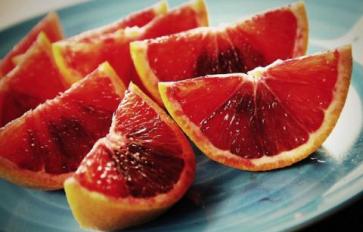
Gout is a form of arthritis that is caused when too much uric acid crystallizes and makes deposits in the joints. Gout causes swelling, redness, tenderness, and severe pain in joints. The attacks often spring about rather suddenly and occur more often at night than in the day compared to arthritis or Rheumatoid Arthritis, which eases into aches and pains throughout the day.
Gout is typically treated with anti-inflammatory medications such as NSAIDs which help to ease the pain, bring down swelling, and lessen the amount of time the attacks last. Changing your diet, exercising, and decreasing or eliminating problem foods (sugar, caffeine, alcohol) can help minimize how often one has gout attacks.
Some key holistic treatments consist of herbs and other plant medicines that specifically target inflammation, lessen uric acid levels in the body, and balance the body’s alkalinity. Alkaline foods help neutralize uric acid which helps it from building up and making deposits in the joints. Today’s walk through Mother Earth’s Medicine Cabinet will take us down the gout relief and healing section!
Plants For Treating Gout
- Pineapple: Pineapples are a delicious way we can get a decent intake of bromelain. Bromelain naturally lowers the levels of uric acid throughout the body’s bloodstream, as well as reduces inflammation. Pineapple is known as a natural painkiller and is packed with vitamin C, which is also great for gout as it also lowers the uric acid levels. Bromelain has many health and healing benefits. It is used to treat angina, sinusitis, bronchitis, and many other illness and injuries. Just add some pineapple to your diet and let the fruit work its magic!
- Celery Seeds: Celery seeds and celery seed extract are known for stimulating the kidneys, helping to flush out any excess waste and uric acid as well. Celery seeds are a diuretic, meaning they will increase the flow of urine, causing you to visit the bathroom more often. In ancient times celery seed was used as an Ayurvedic medicine to treat the common cold, influenza, poor digestion, digestive issues, and various forms of arthritis. Celery seed is also known to naturally lower blood pressure levels. The anti-inflammatory properties help to ease inflammation and pain.
- Cherries: Another tasty medicine to add to your daily diet. Cherries, whether they are tart or sweet, are packed full of antioxidant properties which help lower the amount of uric acid in your bloodstream. This beautiful fruit can actually decrease how often gout attacks strike. One study included 633 individuals dealing with gout. The participants consumed cherries over a two-day period and in two days the results showed a 35% lower risk of attacks compared to when no cherries were consumed at all. All you have to do is add a handful of cherries to your diet on a daily basis and enjoy.
- Apple Cider Vinegar: ACV is somewhat of a cure-all because it is so good for so many things. ACV is known for helping the body become more alkaline. The acidity from the ACV helps relieve pain and adds alkalinity to your body. Once again, alkalinity helps eliminate uric acid from your bloodstream, balancing things out. Adding a couple tablespoons of raw ACV to 8 ounces of water and drinking it 2-3 times a day can be super beneficial (add some honey and cinnamon for taste, if desired). ACV can also be used topically so it makes a great foot soak. Add one cup of ACV to 4 cups of hot water and soak for about half an hour -- this will help ease any pain. (You can even make your own apple cider vinegar to use!)
- Ginger: Ginger is full of anti-inflammatory properties that help ease the pain and inflammation brought on by gout. Ginger not only contains anti-inflammatory properties, it also contains anti-oxidative properties as well. Anti-oxidative properties help heal damage caused by free radicals roaming around damaging our cells. You can add ginger tea, fresh ginger, crystallized ginger, and ginger drinks to your diet to get some gout relief. Some people even apply raw crushed ginger directly to the afflicted areas to get topical relief.
- Turmeric: Turmeric is a close relative of ginger -- in fact, they both have many of the same healing properties and abilities. It is believed that the curcuminoids found in turmeric are responsible for the anti-inflammatory properties that ease the swelling and pain. Curcumin (found in turmeric) is a type of curcuminoid that has been used to treat cancer, arthritis, and Alzheimer’s. Add a little extra turmeric to your diet and see how it can affect you. (Try making a jamu juice with it!)
- Water: This last one is totally not a plant but it is extremely important and helpful when dealing with your body. H2O is the best way to help your body flush out any excess waste -- and especially uric acid. It will make you frequent the privy more often but it will also help cut back on any extra work your kidneys may have to do to flush themselves.
Gout can be troublesome for many. The pain and inflammation suddenly coming out of nowhere can lead to sleepless nights and a lot of discomfort. It’s always good to know what you can add to your diet to help heal yourself. I hope today’s walk through the Medicine Cabinet finds you well and in a good way! Happy Healing!








